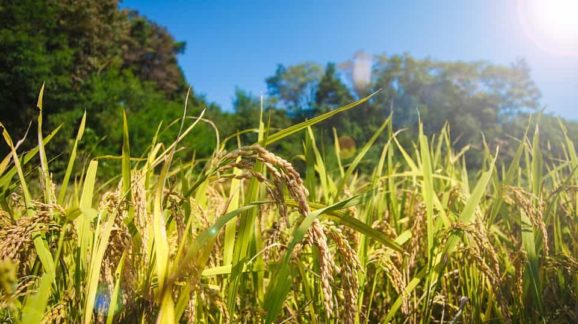Unfounded Accusations Regarding Bees and Glyphosate

 Recent accusations that a popular weed killer harms honeybees have become headline news in a wide range of sources including CBS News, The Guardian, and Popular Science. Yet the solitary study they all cite doesn’t hold much water.
Recent accusations that a popular weed killer harms honeybees have become headline news in a wide range of sources including CBS News, The Guardian, and Popular Science. Yet the solitary study they all cite doesn’t hold much water.
Glyphosate, the active ingredient in Monsanto’s Roundup herbicide, is useful to both farmers and consumers. It’s particularly valuable to farmers who also have genetically modified plants that are resistant to Roundup, such as “Roundup-Ready Corn,” which enables Roundup application to control weeds with low risk of damage to nearby crops.
Not surprising, both the genetic modification and Monsanto connections have fostered activist campaigns that seek to undermine the market for Roundup and promote the product’s outright ban. These activist groups have long made questionable claims about its risks to both humans and the environment. They have even managed to infiltrate the World Health Organization’s International Agency for Research on Cancer, which recently misclassified glyphosate as probably carcinogenic (see the details in my recent study).
The recent study on glyphosate and bees latches on to questionable claims about other chemicals harming honeybees—you can learn more about that on my website.
The study, published in Proceedings of the National Academy of Sciences, suggests that glyphosate exposure can upset the development of healthy bacteria in bees and thereby make them more susceptible to diseases. The authors allege that they exposed bees to glyphosate at levels bees might experience in the field as they forage among weeds treated by the chemical. But despite scary headlines, a close look at the study shows it has more holes than a honeybee hive.
The American Council on Science and Health’s Josh Bloom offers an insightful critique in “Glyphosate Bee Death Story Is Bee-S.” Bloom rightly questions the claim that exposure levels administered in the study are akin to field exposures. Indeed, the researchers mixed the chemical with sugar water and fed it to the bees. “Whoa. Here is an assumption that puzzles me,” observes Bloom. “What does a dose of 5-10 mg have to do with the amount of glyphosate that would be found in, or consumed by, a bee foraging in weeds that contain a similar concentration?”
We must also remember that glyphosate is a weed killer, which means the flowers on these weeds likely die pretty quickly if the plants are ever even allowed to flower at all, leaving little or nothing for bees to visit. Indeed, farmers have a great incentive to prevent weeds from ever going to flower since they want to keep them from producing seeds. This is another reason to doubt that feeding bees the amount of glyphosate that a farmer might apply to a plant is not the same as field exposure.
Bloom also notes that the study did not find adverse effects among the bees with the highest glyphosate exposures in the study. Rather, reduced gut bacteria was found among those bees with lower exposures, which Bloom notes is a major red flag. In fact, the author could have as easily assumed that bees do better when exposed to higher levels of glyphosate. Bloom also notes serious confounding factors in the study, as well as the fact that any effects measured were really not particularly compelling. He concludes that the study is so flawed that it “should be returned to the hive.”
Bloom isn’t the only one to question the study. With some digging I found another very detailed and thoughtful review of this study as well as the larger body of science related to bees and glyphosate. Science blogger and biologist Iida Ruishalme penned a lengthy post on the topic that she originally drafted last June, and she updated in September 2018 to address this most recent study. She notes:
Glyphosate is a herbicide, in other words, it is toxic to plants. Its target enzyme is not found in insects or other animals, so it is generally not very harmful to them – and as confirmed by a recent study, even direct sprays are not lethal to bees.
Ruishalme’s post provides an overview of numerous studies related to glyphosate and bees, which overall do not find serous impacts. Some studies even involved spraying glyphosate directly on bees without finding ill effects. If you scroll about halfway down her post, you will find Ruishalme’s insights on the latest study. There she makes some very enlightening observations, including:
- The levels administered in the study are “rather high” and don’t reflect the fact that glyphosate rapidly breaks down in the environment.
- Feeding bees sucrose solutions affects the amino acids in their guts, which may be a reason why the (unrealistically) high levels of glyphosate might have some impact on gut bacteria.
- Many of the study findings are “noisy and inconsistent” indicating that the fluctuation of gut bacteria is affected by factors not necessarily related to the glyphosate, such as natural variations of gut bacteria in bees.
“If you care about bees, look elsewhere. We do know that habitat loss, disease, invasive species, climate, and many other factors have detrimental effects” says Ruishalme. She points out further that glyphosate is actually an important tool for reducing environmental impacts associated with farming. In fact, it allows for no-till farming, which reduces runoff that would eventually pollute waterways.
Ruishalme is right. If we really care about bees and wildlife, we need to focus on facts and not simply accept accusations that wrongly demonize valuable chemical products like herbicides and pesticides.